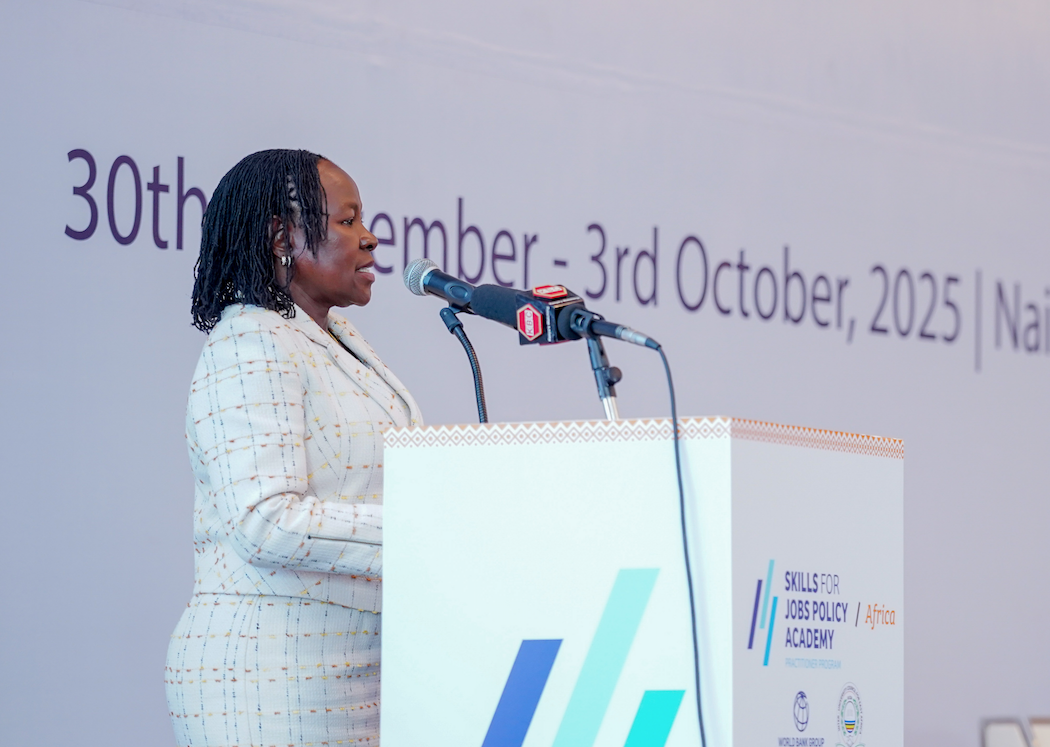
A strategic partnership between Technical and Vocational Education and Training (TVET) institutes and industry players in Kenya, Tanzania, and Ethiopia has resulted in an 80 per cent surge in graduate employment within just six months, a World Bank-supported project has revealed.
The East Africa Skills for Transformation and Regional Integration Project (EASTRIP), funded by the World Bank, shows that employment rates for TVET graduates rose from 47 per cent before the project to 80 per cent currently.
Notably, employment among female graduates has also significantly improved—from 51 per cent to 74 per cent.
“Our experience has shown that when we align training to the needs of industry, young people get jobs quickly,” said Dr Cosam Joseph, EASTRIP Regional Project Coordinator.
“The 16 flagship TVET institutes under EASTRIP have established partnerships with more than 300 private sector companies to assist in curriculum design. This ensures students learn what employers actually need.”
Joseph spoke during the Africa Skills for Jobs Policy Academy in Nairobi, organised by the World Bank in collaboration with the Inter-University Council for East Africa (IUCEA).
Under EASTRIP, the 16 TVET institutes have designed over 500 new, demand-driven programmes across a range of high-growth sectors, including renewable energy, aviation, transport logistics, manufacturing, and hospitality.
These programs have been co-created with industry to ensure relevance and employability.
In Kenya, the KenGen Geothermal Training Centre has evolved into a regional centre of excellence for geothermal technology.
“In our case, the training is industry-based because our centre is part of KenGen,” explained Risper Kandie, a geologist and leader at the KenGen Geothermal Training Centre.
“Students gain real-world experience during training, preparing them for direct deployment into the renewable energy sector.”

In Tanzania, the National Institute of Transport launched aviation and logistics courses, with graduates now working for regional airlines.
“In aviation and the broader transport sector, we have partnered with airlines and logistics firms to design training programmes,” said Eng. Dr Prosper L. Mgaya, Rector of the institute.
“Our graduates are absorbed into the workforce almost immediately after graduation.”
In Ethiopia, the General Wingate Polytechnic expanded its offerings to include manufacturing and leather technology.
“We began with only six programmes. Today, we run over 20 developed with industry partners. This has made our graduates more attractive to employers,” said Zekarias Gebre Belayneh, Project & International Relations Coordinator at the polytechnic.
The partnerships have encouraged greater cross-border student mobility, with more than 2,000 students now studying in neighbouring countries—up from just 31 at the project’s inception.
“We’ve had exchange students and staff from Ethiopia and Tanzania study alongside Kenyans,” said Evans Onyango, Head of Research and Innovations at Kisumu National Polytechnic. “These interactions build professional networks and foster regional unity.”
Student enrolment in the 16 flagship TVET institutes has skyrocketed, rising from 6,971 to 57,857. Among them, nearly 19,000 are women—an important milestone in addressing the gender gap in technical fields historically dominated by men.
















